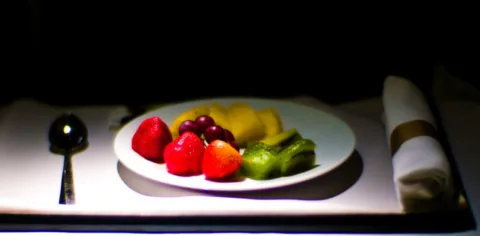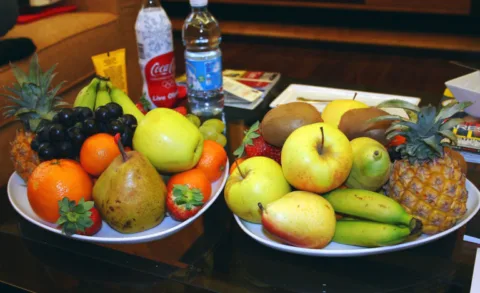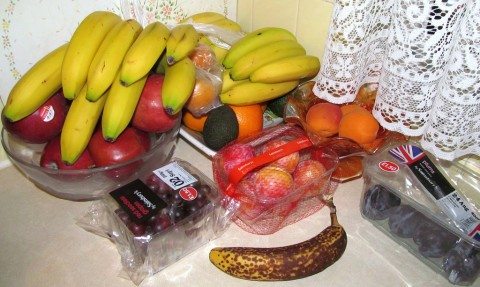When it comes to nutrition for marathon and ultramarathon runners, it can be quite frustrating because of the many dissenting and conflicting views. How can everyone be right?
And yet there are many ultra-runners who tout their particular nutritional philosophy as the secret to their success.
In the next few posts, I plan to examine some of the most popular and noteworthy nutrition plans that are being promoted among ultra-runners.
This first one is Fruitarianism.
What Is The Fruitarian Diet Plan?
Fruitarianism is an ultra-running nutrition philosophy recently popularized in the running community by ultra-runner, Michael Arnstein.
Fruitarians eat as much raw, preferably organic, fruit as they want.
The fruitarian diet plan follows an 80/10/10 philosophy:
- 80% carbohydrates
- 10% protein
- 10% fats
This stands in comparison to more conventional diets that follow a 40/40/20 breakdown.
Ultra-runner Michael Arnstein has been following this diet for over 3 years. Other than an occasional raw vegetable, he eats nothing but lots of fruit.
Arnstein, who sometimes runs over 200 miles in a week, says he often devours 30 pounds of fruit a day. It’s not uncommon for him to eat 30 oranges, 5 cantaloupes, 1 watermelon, and 40-50 bananas in one day.
Is Fruitarianism New?
The fruitarian diet is not technically new. It has been around for hundreds of years — probably longer. In his writings, artist, scientist, and inventor Leonardo da Vinci indicated he was a Fruitarian.
To most Fruitarians, the diet is simply a natural progression — from omnivore to vegetarian, vegan, raw foods, and finally Fruitarian.
To some it is the chosen diet for health reasons. Others follow it because they believe humans were always destined to eat fruit — starting from the Garden of Eden.
Fruitarians believe cooked food is an unnatural human creation and is toxic to the body. They eat 100% raw food as close as possible to its natural state. The Fruitarian says it is never possible to improve upon nature, and when our diet is in harmony with nature, our health excels and our consciousness expands.
This Woodstock Fruit Festival documentary explores the Fruitarianism lifestyle:
- The 80/10/10 Diet by Douglas N. Graham
- Fruitarianism: The Path to Paradise by Anne Osborne
Is The Fruitarian Diet Plan Healthy?
There is widespread debate about the benefits of the Fruitarian diet, and there are some who view it as detrimental to one’s health.
Those who oppose the Fruitarian diet say there are many risks associated with the diet and the risks grow as the degree of Fruitarianism increases:
- It is stated that a person whose diet is 75% fruit is likely to have more health issues that a person on a diet consisting of 50% fruit.
- It is said there are serious risks associated with this diet for diabetics, since fruit has a high sugar content.
- There are also the risks of serious nutritional deficiencies — including vitamin B12, calcium, iron, zinc, omega-3 and omega-6 amino acids, and protein.
Michael Arnstein attributes his extraordinary performance as an ultra-runner to his Fruitarian diet.
Arnstein’s training diet includes eating up to 6,000 calories daily. He maintains 3-5% body fat, and says he rarely if ever gets sick or injured — all of which he attributes to his Fruitarian diet plan.
Here are Arnstein’s tips for a beginner who wants to transition to a Fruitarian diet.
Do your own investigation and research to determine if the Fruitarian diet plan is something you are interested in trying as an endurance athlete.
Benefits Of Incorporating More Fruit In Your Diet
Fruitarian or not, there is tremendous value to incorporating fruit into your training diet.
There’s a reason why you see bananas and orange slices at marathon aid stations – they supply important nutrients to the body.
Here are some fruits that have a huge upside for ultra-runners:
Cherries – Cherries are one of the most antioxidant-rich fruit and provide a wide range of health benefits, as well as performance and recovery benefits for athletes. Research shows that runners who consume cherry juice, twice a day for 7 days a week, had strikingly less muscle pain following a long distance run. The post-exercise benefits are noteworthy because of the fruit’s natural anti-inflammatory components. A recent study from the University of Michigan shows that a cherry enriched diet lowered total weight, body fat and inflammation, all associated with heart disease.
Bananas – Bananas are one of the best pre- and post-workout snacks. It’s no surprise that they seem to be included in every post-race goodie bag. Loaded with potassium and Vitamin B6, bananas help maintain low blood sugar, regulate digestion and re-stock your body with lost electrolytes after any sort of physical exertion. Vitamin B6 in bananas acts as an anti-inflammatory agent that helps ward of cardiovascular disease.
Oranges – In addition to providing ample potassium, are optimum sources of Vitamin C. Vitamin C helps reduce inflammation and helps your body absorb iron from plant-based foods — like beans and lentils. This is important because athletes, particularly female athletes, are prone to iron deficiencies. Because oranges and orange juice also provide plentiful amounts of carbohydrates and water, they can lower your risk for fatigue and dehydration after intense exercise.
Raisins – Many athletes rely on glucose supplements before events for boosted energy and performance. In a study published in the “Journal of Strength and Conditioning Resistance,” 8 endurance athletes consumed a sports gel supplement or raisins containing the same amount of carbohydrates 45 minutes before exercise. Researchers found that the raisins provided the same performance benefits as the sport gel. Raisins are also less expensive than glucose gels and provide significant amounts of other valuable nutrients — including potassium, iron, and fiber.
In my next nutrition article, I’ll be looking at all the rave about the low-carb/high-fat ultra-running diet and the issue of ketosis (shifting the body’s dependency from carbs to fat for ultra-endurance energy).







